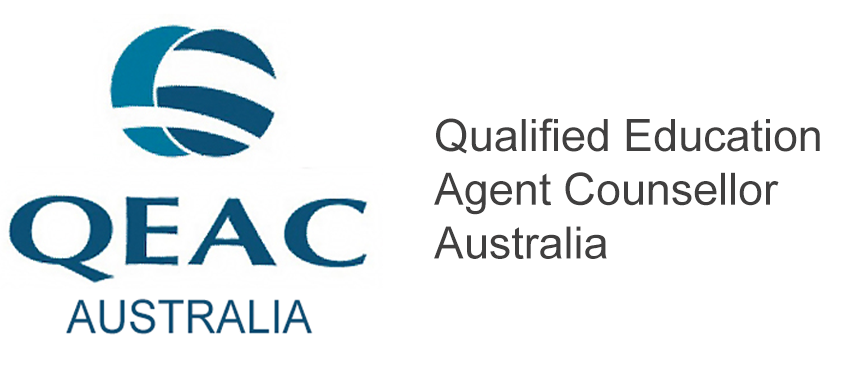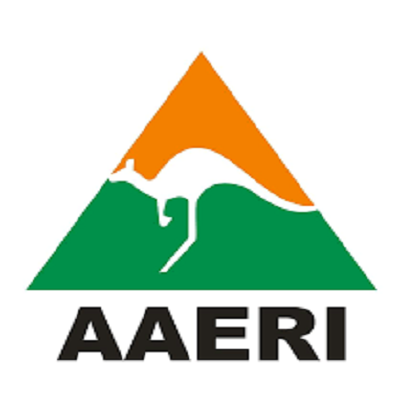

IELTS / TOEFL is not mandatory for admission to number of institutions in English Taught programs but having the same will have a positive impact on Visa outcome.
Students are eligible for 18 Months post study work Permit on completion of a Masters and Bachelors programs.
Once you complete your bachelors or PG from any university in Germany you will be able to look for job options in 26 other countries, as you will be having Schengen visa, which is valid for travel to countries like Austria, Belgium, Czech Republic, Denmark, Finland, Greece, Hungary, Italy, Latvia, Lithuania, Netherlands, Norway, Spain, Poland, Sweden, Switzerland and many more.
Students can work upto 20 hours/week. An average part time earning is Euros 8‐10 per hour.
During 18 months Post Study Work Visa, if you find employment, then you can apply for Open Work Permit/ Blue Card initially, it is issued for a maximum of 4 years based on the job offer. After 33 months, holders of the Blue Card are granted a Permanent Residence Permit if they can prove that their language skills comply with German B1 level. In cases where language skills corresponding to level B1 already exist and have been certified, the settlement permit can already be granted after 21 months. Blue Card is issued for those who meet the salary criteria of Euro 46400 annual salary of any profession and EUR 36,192 per year or above for scientists, mathematicians, engineers, doctors and IT specialists. All others who meet German Federal Employment Agency requirement offered work permit.
Blue Card holder are eligible to get family visa and they can work. During your work permit if you meet the salary criteria then the Visa can be changed to Blue Card status.
Spouse Work Permit
If you enroll in any Master’ Program in German Institutions, your spouse can accompany you and can work full time during your study.
The universities and the obtained graduate degree are well-known all over the world and show the future employer that the student had a firm basic education and also has received quality knowledge further. At German universities the practical part of the studies has an important role to play. Internships has to be completed in many programs and every professor recommends doing one. Big industry, especially the large cities provide many opportunities for these internships. One can be absorbed in the most different kinds of disciplines and companies.
Universities in Germany are of very high standards in terms of reputation and international acclaim. Many of the technical universities such as TU Darmstadt, TU Karlsruhe, RWTH Aachen etc., rank very high in the list of "World ranking for the best technical institutes".
Low tuition fees and many benefits and facilities available to students notwithstanding, the combined costs of living and studying in Germany can be considerable – various scholarships and part-time work during studies are the most common ways of coping for students, and should be duly considered as means of funding. The living expenses on an average comes up to 400€- 600€ per month, which is inexpensive when compared to other European countries,
The world class facilities that reach the German universities root from the benevolent funding provided by the German government. The laboratories and the research facilities meet the international standards.
The policies drafted by the German government to attract talents to teach in the universities are laudable. The industry "big shots" and technical experts are easily available and hence most of the universities boast of an excellent faculty. Also since the internationalism itself has a very great effect on the German universities, the partnerships and tie-ups also yield eminent visiting faculties from various countries to come to Germany and deliver their knowledge.
Germany is known for its Excellency in technological innovation. When one tries to sit and dig deep into the roots of this innovation, it points out to just one fact, i.e., The German universities! Ever since the dawn of modern engineering, the technology that rooted out of the German soil is considered to be one of the best in the world. Be it be any discipline of engineering (Electronics, Mechanical, Chemical, Civil and Electrical etc.) German companies are just on the top of the list not only nationally but also internationally.
Most of the courses offered by the German universities are predominantly taught in German. However, due to the growing demand and huge in-flow of foreign students, the universities have switched to English taught courses. Today there are more than 350 English taught courses in various universities across Germany. These courses are offered in variety of disciplines (engineering, medicine, natural sciences, law, arts etc) are internationally recognized. This eliminates the fear in most of the young minds who are skeptical about their degree earned in Germany.
Since the education system is split into "practical oriented" study and "industry oriented" study, many German universities offer a 3 semester Masters course (1.5 years). Alternatively, there are also 4 semesters Masters Course (2 years) offered by many technical institutes. This is a huge advantage to people who would want to complete their Masters as soon as possible and head directly to the German industry to work.
The German universities are usually located in such strategic locations where the industry concentration predominant and the research hubs are easily reachable. This helps the industry-university interaction grow further and eventually to make the learning environment bidirectional. Eventually, it also helps the students who look for jobs after their Master Degree to stay and work in the same city.
The learning experience in Germany is not restricted only to the class room interactions. The Germans are of the opinion that, learning does not comes from the Professor-student relationship only, it also comes from peer-peer interaction too. Hence the university selection committee in every university strikes a perfect balance to have students from all countries and all backgrounds.
One of the major advantages of studying in Germany is the "highly subsidized tuition fee" and scholarships offered. Students with high grades (80-90% of marks for 12th or bachelors) are eligible for 100% scholarship. Admission will be limited to the students with higher grade from the total application. For those who have marks less than 80% will also be eligible for scholarships where they have to only pay lesser tuition fees. Foundation programs are available for the Bachelors and Masters Programs entry (students with lesser grade and who are not eligible for scholarship entry can enroll for the foundation program and on completion of the program the college will assist to get scholarship admission in government universities).
Germany is known for its industrial hub (Frankfurt, Munich, Stuttgart, Hannover, Bonn, etc.) Many world famous German companies such as Mercedes Benz, BMW, Audi, Porsche, Volkswagen, Siemens, Bosch, SAP etc. provide excellent career opportunities to students who are capable, irrespective of their nationality. Thousands of supplier companies to these big giant companies also keep their doors open to the international talents.
Depending on which area in Germany one decides to study, there are numerous activities and pleasure trips to go in the free time or on holidays. During this traveling one can enjoy the scenic beauty of the country. The wide range of leisure activities and pastimes offered by the universities and colleges are complemented by numerous opportunities outside the university grounds. Sport, culture or simply having a good night out – something is offered for each and every taste.
One of the benefits of applying to Germany is that there is an assurance that you will get admission in the colleges even if you have relatively scored less.
If the student did not get admissions for the required course due to low grades, then he/she can enroll for foundation programs which are available in the various fields of health, IT, engineering & management. After the completion of the course the students will become eligible for admissions in Masters/ Bachelors in the required field. During the foundation program students will also be able to learn German.
The total expense for these programs will come up to only €6000 - €7000 per year. Also the students who enroll for foundation programs will get an option to study further at a reduced tuition fee.
We are most recognised in the industry by following international Recognitions & Certifications

The Association of Australian Education Representatives in India is an independent organization the ensures the credibility of education agents who are recuriting Indian students on behalf of Australian Education institutions.

ICEF - An Agency promoted by Canadian Consortium for international Education.

Education New Zealand is New Zealand's Government agency for building International education.

United Kingdom's International Organization for Educational Opportunities.


Students are attracted with highly Advanced Academic Qualifications and Great Carrier Opportunities


Excellent Living Conditions Practical Oriented Courses and Highly Academic Universities.


Great carrier Prospects and Permanent Residency Opportunities Attract Many International Students.


Students are attracted with highly Advanced Academic Qualifications and Great Carrier Opportunities


Students are attracted with highly Advanced Academic Qualifications and Great Carrier Opportunities


Students are attracted with highly Advanced Academic Qualifications and Great Carrier Opportunities
YEARS
EXPERIENCE
LICENCED IMMIGRATION
CONSULTANT
UNIVERSITIES
WORLD WIDE
SUCCESSFUL
VISAS
I was very much happy of the way the International team treated me. They provided a positive support during my processing. Thanks to all members of International Academy.
Anananya M Reji
I am very happy to receive my Australian student visa with the help of international academy. They are very supportive and I am thankful to the entire staffs.
Anisha Lukose
When I planned to study Australia , after lots of research on net I found this agency, which has good reviews and good reputation. From the first step to the last step the agency helped me through the process. I would recommend this agency to anyone who seek me for assistance.
Anjana Thomas
They are a team of great individuals who go all out to make sure your dreams come true. So thankful to them for all the hard work put in to help me acquire this dream. I highly recommend International Academy for those who seek higher education in abroad countries.
Peeyush Sasidharan
This agency is one of the best in terms of information and high standards of quality, delivery and security on all fronts. Thank you
Vishnu K
Excellent services. All the staffs are very supportive and caring. They were always with me for answering and clearing my doubts in all stages of visa processing.
James K George
One of the best consultancy for immigration. I thank whole international academy team for their support. Thank you so much
Vaseem Ashraf
I feel so happy and proud to have a real time experience with this esteemed organisation. Best staffs I have ever seen. Everyone helped me from the start to till I got the visa. They were really helpful.
Shamees P Kareem
Outstanding support from start to end. My sincere thanks to all of them and I recommend their service those who wish to go abroad for studies
Blesson Joseph